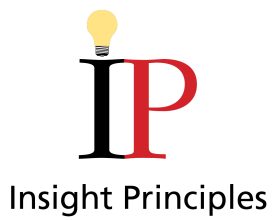by pressablealiassolutionscom
Share
Welcome to Insights and Implications!
We like to keep up with the latest about the human dimension. Sometimes we find articles that come close to our understanding of the mind. Read on to learn about an article that gets a piece of the picture but ends up missing a critical factor.
Self Awareness and Self Management
I read an interesting article in the Harvard Business Review by Jennifer Porter, (Click Here). Porter writes that self awareness alone does not lead to self improvement. There is another necessary skill, something she calls self-management, “a conscious choice to resist a preference or habit, and instead, demonstrate a more productive behavior.”
I liked a lot of what she covers in the article. She describes the difficulty of doing something different than a habit. A habit is like a well-worn path in the brain. It’s so much easier to take the well-worn path than to make a new trail. Habits are like auto-pilot, they take little thought and no reflection. Habits are comfortable and they align well with your preferences. This is why they can be hard to break.
Porter lays a plan for self managing habitual behavior. It takes work. She suggests that you pick a specific behavior to change and then notice and reflect on what’s driving your inability to manage it. This part of the plan I think Porter gets right. She recognizes that behavior does not happen in a vacuum. Before behavior there is the thinking and feeling that determine the behavior. It all happens so fast you don’t notice it. Taking a moment to look and reflect yields valuable information.
If you are someone like me whose habit is to criticize, checking the feeling I’m in before I speak really helps. Critical behavior has a feeling to it. If you are someone like the client Porter describes in her article whose habit is to talk too often and too much in meetings, checking out what’s going on inside helps. Do you talk a lot because you get excited? Do you think your ideas are better than others? Are you wanting to impress people? Are you impatient?
Next, for Porter, the real work begins. She suggests you lay out a concrete plan of choices and strategies to use in place of your habit. For example, her client who talks too much in meetings would set the number of times he speaks and for how long. He would time and track himself and control his impulse to speak in order to meet the limit. Then he would practice, practice, practice until he had a new habit.
What Porter misses and why she prescribes so much work, is the power of insight.
Your mind is designed to bring you a flow of thoughts. Whatever the thought, consciousness makes it into an experience. Behind this flow of thoughts is an intelligence capable of bringing you a brand new thought – an insight. An insight could completely change how something looks to you, including a habit. If fact, this has happened many, many times in your life. You’ve likely stopped doing habits without noticing the insight. The habitual behavior no longer looked productive or wise so you stopped.
There is no such thing as insight on demand but insight is an innate capacity that you never lose. The beauty of insight is that it is tailored by the deeper intelligence within for the challenges you face. It integrates your knowledge, is sensitive to your situation and what is relevant and important to you. It shows you what you need in a way that you can intimately understand it. This kind of specialized answer to your challenges can only come from within—from your own wisdom and innate intelligence.
As Porter writes, self awareness of a habit is a first step and recognizing the thinking and feeling behind the behavior is valuable. Then, let insight help you. Look for an insight. Maybe the insight will be a plan or a strategy to change your behavior or create a more healthy one in its place. Maybe the insight will reveal an underlying insecurity that is driving your habitual behavior and making it difficult to stop.
I’m not saying that effort is bad or unnecessary. I’m saying there is an innate, often overlooked resource. Sometimes insights rock your world and lead to a new behavior instantly. Sometimes they come in small increments that impact your behavior slowly overtime. Effort and work may be required – but the wind will be at your back.
Sandy Krot
Sandy Krot
